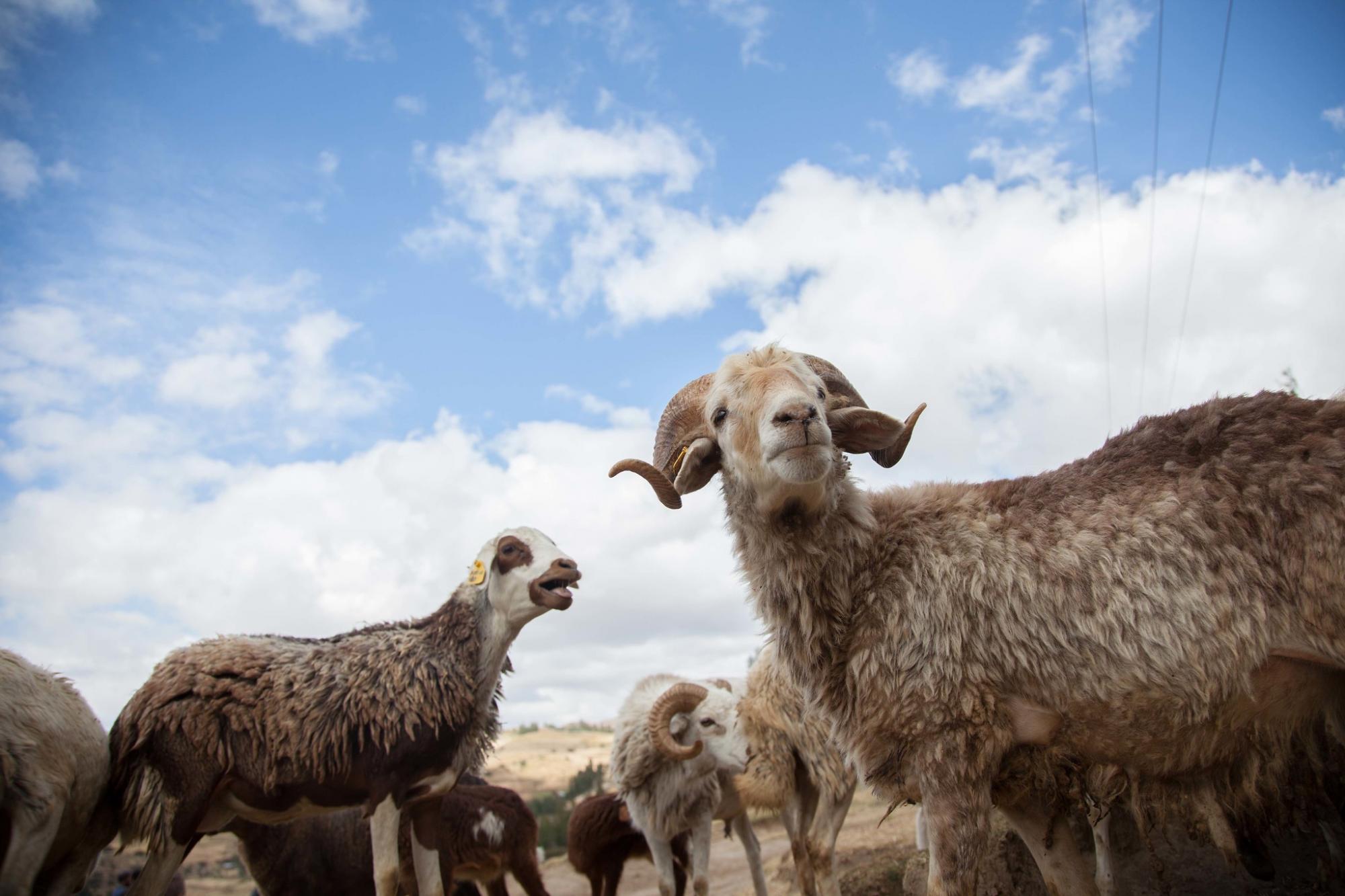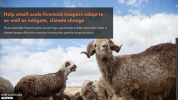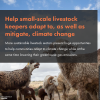
Help small-scale livestock keepers adapt to, as well as mitigate, climate change
More sustainable livestock sectors present huge opportunities to help communities adapt to climate change while at the same time lowering their greenhouse gas emissions.
Core message
Facts
More sustainable production of livestock will help the world’s small-scale farmers and herders—who feed most of the world today—adapt to a hotter and more unpredictable climate, and thus to feed more people.
After drought, flooding or other climate shock, livestock are often the only asset that the world’s poor have to help them recover.
Keeping livestock helps farmers adapt to the drier, warmer and more variable conditions that climate change can bring about.
Sustainable livestock sectors can lower greenhouse gas emissions.
Livestock investments can generate efficient, low-carbon food systems that support rather than harm the environment.
Actions
Incorporate livestock keeping and related livelihoods in strategies to help communities adapt to climate change.
Facilitate the use of livestock as a climate change adaptation strategy.
Provide government-supported and well-targeted off-take of livestock to help livestock keepers cope with severe drought.
Improve access by livestock keepers to livestock markets and provide them with incentives to sell their animals at a prime age to reduce overall herd sizes.
Listen to these two podcast episodes to hear from ILRI scientists on livestock and climate issues
Changing climate, changing cattle farming - Part 1
Changing climate, changing cattle farming - Part 2

